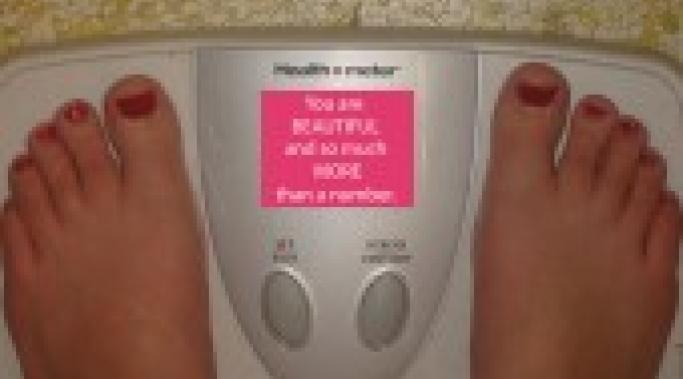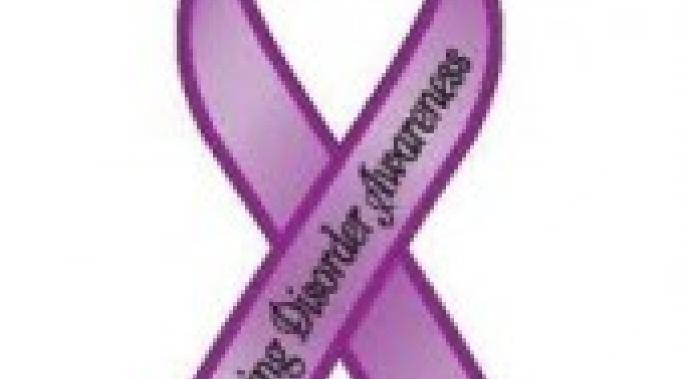It is sometimes hard to maintain a positive body image and stay in recovery during the "bikini season." HealthlyPlace blogger Angela E. Lackey talks about how to stay with recovery during a time of year when people are flooded with messages about dieting and having the "perfect body." Watch here:
Eating Disorders Treatment
It was inevitable. The first step in recovery from anorexia nervosa is weight restoration. I knew that I had to gain weight and that it eventually would be noticeable. I often wanted to crawl in a shell like a turtle during the early stages of my weight gain because I felt so different. So much larger. I took up too much space, and I still wanted to hide.
I wasn't entirely comfortable in this new body. However, I slowly grew used to my body with its feminine curves, and several times I would look in the mirror and think how much better I looked than when I was emaciated and skeletal.
But I knew what was coming...
One day I was in the bathroom with a friend. She commented that the new weight looked good on me. Unfortunately, she didn't stop there. She then went on to point out the slight roundness of my stomach, and helpfully suggested I could wear looser clothes if it bothered me.
It hadn't bothered me until then. But this seemingly innocent comment reverberated throughout my mind days afterward.
As a writer and online blogger, I often wonder about the power of the words. I write about eating disorders and recovery, and hope and pray that my words reach out to people and help them feel less alone as they struggle with eating disorders and recovery. I know it is a hard struggle because I have been going through it for four years, and I have tried to convey both the truth of that struggle and the certainty that recovery from eating disorders is attainable through my words here.
I am honored and proud to have received the Web Health Awards Merit Award for "Surviving ED." I dedicate this award to all those out there who are doing the hard work of recovering from their eating disorders. This blog really belongs to them, and they are my inspiration as I sit down each week to write.
On December 28, 2010, I started the process of recovering from anorexia nervosa. Many people ask how I was able to get started when I was going through a multitudes of stressors.
It really was very simple at its core—I woke up that morning, made my breakfast, and proceed to eat one bite at a time. It has been that way ever since.
National Eating Disorders Awareness Week 2011 ends Saturday, Feb. 26. Each year as it draws to a close, I always think about what I and others have gained from the presentations, articles, and other activities devoted to helping people understand eating disorders.
The prevailing message each year is one of hope and belief that eating disorders do not have to rule anyone's life.
National Eating Disorders Awareness Week 2011 starts this Sunday. This year's theme is "It's Time to Talk About It."
Talking about it means dispelling the myths surrounding eating disorders. Anorexia nervosa is not just an illness of upper middle-class and wealthy adolescent females. Bulimia nervosa is a deadly illness even if the person suffering from it is at a normal weight. Binge eating isn't just eating an extra cookie or two.
Eating disorders are real illnesses that can kill.
Developing anorexia nervosa in my early forties still feels a bit surreal. As I begin to recover and regain health, I am looking for answers that might not ever be found. Why would a woman with no previous history of any eating disorder suddenly fall into the hole of anorexia starting at the age of 41?
Like Alice in Wonderland, I have been moving through the strange world of anorexia perplexed by my very presence here. The questions continue to hammer at my brain.
I reached my healthy goal weight weeks ago. I continue to eat well and maintain my weight. I am feeling more alive than I have in years, and I would like to forget I ever had anorexia nervosa and move on to real life.
It isn't that easy. Now I need to discover why I developed an eating disorder at the age of 42 and resisted recovery for years until I almost lost everything, including my life.
Living with anorexia, I've been struggling to get to a healthy weight for several years. As I learned from my doctor, reaching your goal weight is a key part of eating disorder recovery. Watch this video to understand why.
The road to eating disorder recovery has been a long and difficult journey for me. I often have felt lost in the fog of anorexia, unable to relate to my husband or other people. I have struggled, at times, to even think when I was in my worst restrictive periods. Often, I would wake up and wish I had died in my sleep. I was that tired of fighting anorexia.
Today, I feel triumphant. I reached my healthy weight this week, and my doctor says I am ready to move onto the next step of recovery: peeling off the layers of anorexia and discovering my true self.







